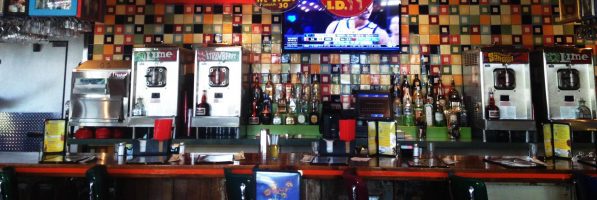New MBA Jobs Munchies

According to the New Zealand Institute for Plant & Food research, the global food and beverage industry is growing at around 5 percent annually, with the global expenditure on products by consumers expected to reach $20 trillion by 2030. Key trends for innovation and product development are in health, convenience, naturalism and sustainability. Where there is a need for innovation in an industry, there are new MBA jobs. Continue reading…
MIT Faculty Director Explains Wave of “Alt” Jobs – Boston News

Let’s explore some of the most interesting stories that have emerged from Boston business schools this week.
How Transportation Disruption and Electric Vehicles Can Slash Greenhouse Gases – Questrom School of Business Blog
BU Questrom Professor of the Practice and Director of the university Institute for Sustainable Energy (ISE)’s Peter Fox-Penner and Research Fellow Jennifer Hatch recently co-authored new research with UC Berkeley’s Will Gorman, which illuminates how the car sharing, electric car, and autonomous vehicle trends could “lead to massive reductions in greenhouse gas emissions—without overtaxing the electric utility grid.”
Hatch explains, “Transportation emissions are 26 percent of the total emissions in the United States. We need to look at realistic ways to reduce those numbers. To significantly reduce greenhouse gas emissions, we know what we need to do: electrify the transport sector and decarbonize the electricity grid.”
You can find the group’s complete study on Science Direct.
Alt-Labor, Explained – MIT Sloan Newsroom
MIT Sloan Professor and Good Companies, Good Jobs initiative Faculty Director Thomas Kochan recently unpacked what he calls the emerging “alt-labor” movement.
“Traditional forms of union representation have declined to the point where advocates inside and outside the labor movement are searching for new strategies that work with today’s economy and workforce. Most of these new forms are working outside of what is considered traditional collective bargaining.”
Kochan adds, “Management had better start to listen to the workforce. And it better recognize that if it doesn’t start to look at more sensible forms of labor law, of labor policy, then it will be in a reactive position when the public does finally stand up and say enough is enough.”
You can read more about Kochan’s work here.
Restaurateur Partners with University to Battle Food Insecurity – Sawyer Business Blog
The Suffolk University Sawyer Business School recently profiled the CARES Pantry, a new initiative developed to address food insecurity on campus and give students access to healthier lifestyles.
Gene Lee, EMBA (’96), President and Chief Executive Officer of Darden Restaurants, who funded the initiative, says, “The goal is for every student in this University to be properly nourished, in and out of class, at work, and in their everyday lives.”

Gene Lee (’96) appearing at a recent event at Suffolk University / Photo via suffolk.edu
“It’s hard enough to be a good student in a competitive environment without having to worry about your next meal. The pantry will provide students with a safety net and a place they can count on and that they deserve.”
You can read more about Lee’s appearance at his alma-mater and the CARES Pantry here.
Where Did Tex-Mex Cuisine Come From, Anyway? Stanford GSB Investigates

Cultural crossover consumerism often as hard to define as it is to track down. From the origins of craft beer, to new styles of cuisine, tracing the origins of these now normalized products can be a never-ending quest.
The Stanford Graduate School of Business recently dove into that calls the authenticity of the Tex-Mex category into question and explores how the mysterious cuisine came to be.
In a new study coauthored by Lane Professor of Organizations Glenn R. Carroll and former Chicago magazine dining critic Dennis R. Wheaton, the duo analyzed how so-called “Tex-Mex” food emerged. They point to an influential 1972 cookbook entitled “The Cuisines of Mexico” by Diane Kennedy.
According to the authors, Kennedy “drew a bright line between the types of Mexican food served on either side of the U.S.-Mexico border.” Her intention was to “protect the purity of the Mexican category [and] advance the idea that Americanized Mexican food was inferior and inauthentic compared to the cuisines of Mexico.”
Carroll and Wheaton noted some major sociological factors that influenced the emergence of Tex-Mex, namely the cross-border race and class tensions between “Mexicans and poor Mexican-American immigrants, as well as between white Americans and Mexican-Americans.”
Despite Kennedy’s assessment of Tex-Mex as a derogatory and denigrating label, the cuisine—loosely defined by corn chips, crispy tacos, burritos, chili con carne, nachos, fajitas, and combination plates slathered in yellow cheese—flourished in restaurants that catered primarily to non-Mexicans e.g. Taco Bell, Chipotle, Chi-Chi’s, and El Torito.
The study incorporates a quote from Texas food writer Robb Walsh, whose defends the legacy of Tex-Mex, offering a more optimistic take on the mass-produced foodstuff.
“We can all thank Diana Kennedy for inadvertently granting Tex-Mex its rightful place in food history,” Walsh says.
“By convincing us that Tex-Mex wasn’t really Mexican food, she forced us to realize that it was something far more interesting: America’s oldest regional cuisine.”
You can read more about Stanford’s look into the history of Tex-Mex here.
D’Amore-McKim Student Startup Offers Up Ultimate Snacking Solution

A new line of handcrafted, high-protein, low-fat chocolates has sprung up from a brand new D’Amore-McKim alumni startup, that offers a “snacking solution for those looking for a healthy treat to sate their hunger between meals.”
Startup Lessons: The Food Mint

The path for startups can be treacherous. In our series “Startup Lessons,” we examine new MBA startups at the ground level to understand how they succeed.
Continue reading…
MBA Startup: Maple Food Delivery Service

Food and start-ups go together like pizza and pepperoni, peanut butter and jelly, General Tso’s and white rice — new businesses and new ways for consumers to fill their stomachs go hand in hand. In today’s connected, digital, and fast-paced world, start-ups have found new ways to bring food directly to consumers in quick, efficient and affordable ways. Some of the most successful food delivery companies, such as GrubHub, started as small-time apps before becoming synonymous with 2AM pizza and desperate dumpling orders. Continue reading…
